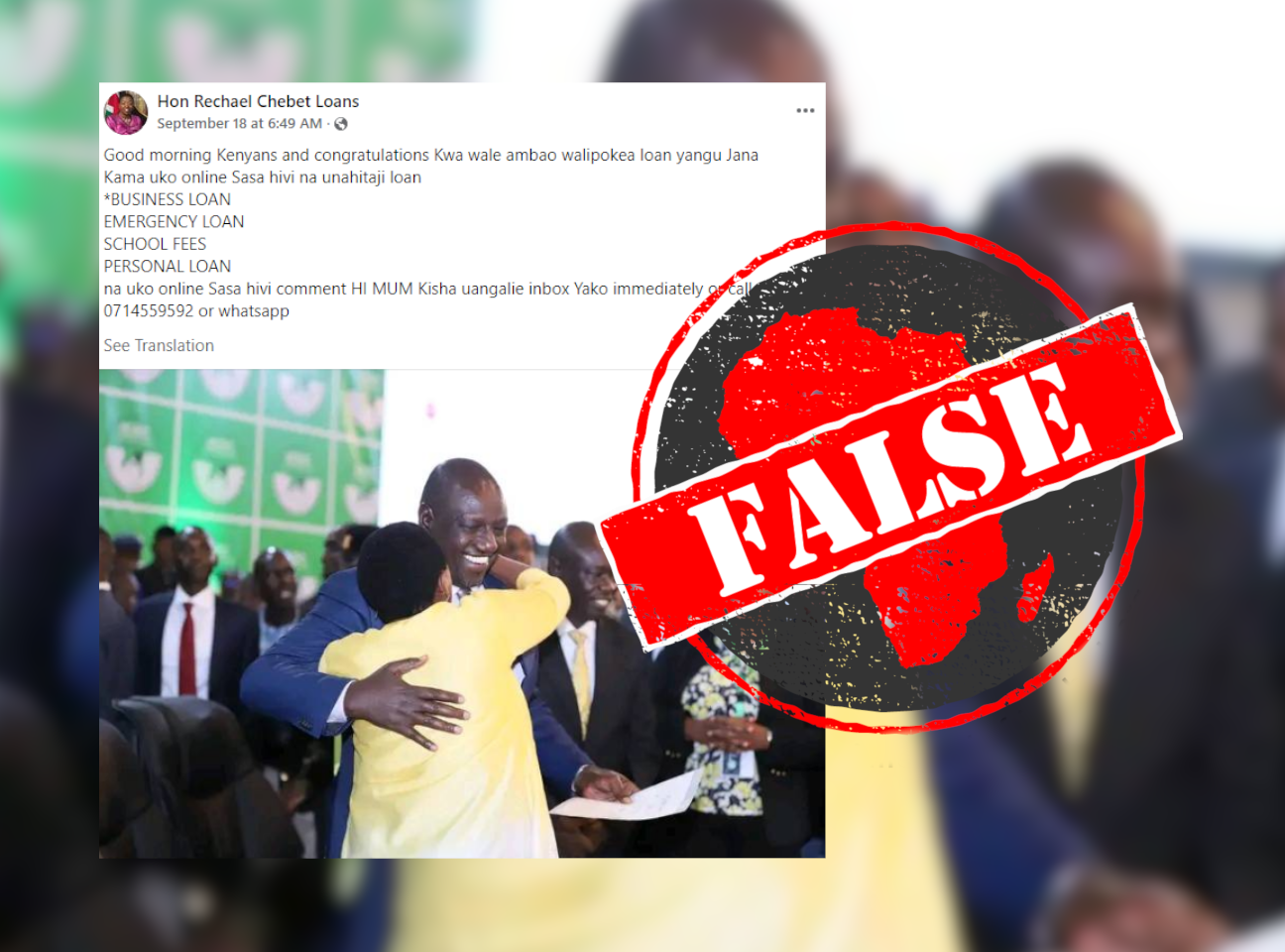IN SHORT: A Facebook account operating under the name of Kenya’s first lady, Rachel Ruto, is offering various loans to users in exchange for their personal details. But this is a fake account and could be trying to scam people.
A Facebook account Hon Rechael Chebet Loans claims to offer different types of loans to Kenyans.
The account uses the name and photos of Rachel Ruto, the wife of Kenyan president William Ruto.
At the time of writing, four active posts advertise business, emergency and personal loans, as well as loans for school fees.
In all the posts, the Facebook account starts by congratulating people it claims received the loans the previous day.
It asks interested users to comment on the post with the words “HI MUM” and check their inbox. They are also given the option of calling or sending a WhatsApp message to two different phone numbers.
But is there any truth to these ads? We checked.

Fake account
No similar ads appear on the official Facebook page for Rachel Ruto.
While the first post on the “Hon Rechael Chebet Loans” page appears to have been published on 24 May 2022, the first lady’s official Facebook page has been active since 2013 and is verified. The account offering loans is not.
It is unlikely that Ruto would operate two Facebook accounts and dedicate one to loans. The account's requests to have the users engage privately by calling or sending a message might be an attempt to scam people.
To protect yourself against scams, see our guide to Facebook scams and how to spot them.
Republish our content for free
For publishers: what to do if your post is rated false
A fact-checker has rated your Facebook or Instagram post as “false”, “altered”, “partly false” or “missing context”. This could have serious consequences. What do you do?
Click on our guide for the steps you should follow.
Publishers guideAfrica Check teams up with Facebook
Africa Check is a partner in Meta's third-party fact-checking programme to help stop the spread of false information on social media.
The content we rate as “false” will be downgraded on Facebook and Instagram. This means fewer people will see it.
You can also help identify false information on Facebook. This guide explains how.




Add new comment